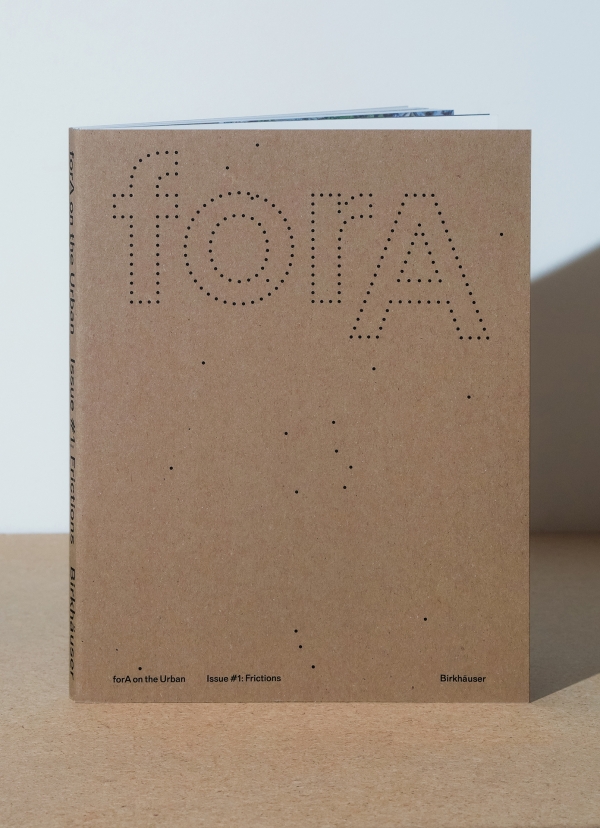forA on the Urban Issue #1 – Eleven Frictions from an Urbanized World
Andrea Börner, Cristina Díaz Moreno, Efrén García Grinda & Baerbel Mueller (eds.)
forA on
the Urban explores the open, multilayered, interconnected, complex, and wild nature of urban manifestations, challenges, and
situations through an expanded notion of architecture.
In the latest issue of the journal, sixteen international
architects, artists and practitioners explore the myriad relationships between friction and space, from everyday frustrations
and big inequities to social and political conflicts. At the same time, these relationships reflect the emergence of plurality
and co-existence within and beyond what is understood as urban.
Sound artist Steloo reflects on the aural experience
of Accra, while Phineas Harper investigates the housing shortage in Britain. Artist Hira Nabi develops a kinship with two
trees in the Bara Gali forest of Pakistan, while curator and artist Ou Ning and architect Xu Tiantian discuss the revival
of villages in rural China. Keller Easterling challenges the conventional mechanisms of knowledge production in favour of
underknown dissenters and activists in academic discourse. Alexia León delves deep into the Peruvian Andean Amazon, and Konstantin
Kim examines the cultural complexities of Moscow. Nasrine Seraji reflects on the frictions accumulated over her six-decades
studying, practicing and teaching architecture. Santiago Cirugeda and María Paz Núñez-Martí document the walls of Europe's
largest slum, Cañada Real Galiana, which serve as canvases for expression. Lola Sheppard and Mason White question the value
of scaled drawings in rural and remote areas of the Arctic Circle, while Emilio Distretti and Alessandro Petti, alongside
photographs by Luca Capuano, share a vision for architectural demodernization through the distinct places of Aba Shawl and
the former fascist rural colonies of Sicily.
While each contribution stands on its own – reflecting particular
circumstances, situations, dilemmas, engagements, observations, or thoughts – together they add up to a kaleidoscopic view
of spatial frictions that have resulted in imbalances as much as the emergence of multiplicity, plurality, and co-existence.
Andrea Börner, Cristina Díaz Moreno, Efrén García Grinda, and Baerbel Mueller,
Institute of Architecture, University of Applied Arts Vienna




